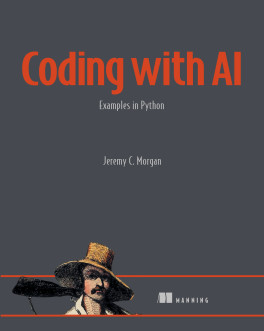pro $24.99 per month
- access to all Manning books, MEAPs, liveVideos, liveProjects, and audiobooks!
- choose one free eBook per month to keep
- exclusive 50% discount on all purchases
- renews monthly, pause or cancel renewal anytime
lite $19.99 per month
- access to all Manning books, including MEAPs!
team
5, 10 or 20 seats+ for your team - learn more

EKKo Inc., the machine learning consultancy you work for, has been building an embedded system to enable deaf or hard of hearing people to participate in online meetings and events on their mobile devices. As a data scientist, your task is to complete the system by enabling it to detect American Sign Language (ASL) in real time. You’ll define a CNN model, train it using the existing ASL dataset, and evaluate the model’s accuracy. To optimize training speed and quality, you’ll fine-tune the model’s hyperparameters using the Keras Tuner. You’ll enable the model to be quantization-aware with the TensorFlow Model Optimization Toolkit (MoT), optimizing size and CPU consumption while maintaining model accuracy. To complete the project, you’ll connect the quantized model with a live video stream and train it on the embedded system. When you’re done, you’ll have a fully functional quantized CNN you can run on an embedded system that successfully detects and transcribes ASL in real time.
prerequisites
The liveProject is for intermediate Python programmers who know the basics of data science. To begin these liveProjects you’ll need to be familiar with the following:
TOOLS- Raspberry Pi/edge computer
- Ubuntu Desktop 18.04 +
- Intermediate Python
- Basics of Jupyter Notebook
- Intermediate NumPy
- Intermediate TensorFlow
- Conda/pip virtual environment setup skill
- Basics of data science
- Understand logistic regressions and classification
- Load data on a neural network
- Train a neural network
- Assess a CNN model
- Basics of linear algebra (vectors, spaces, matrix transformations)
 features
features
- Self-paced
- You choose the schedule and decide how much time to invest as you build your project.
- Project roadmap
- Each project is divided into several achievable steps.
- Get Help
- While within the liveProject platform, get help from fellow participants and even more help with paid sessions with our expert mentors.
- Compare with others
- For each step, compare your deliverable to the solutions by the author and other participants.
- book resources
- Get full access to select books for 90 days. Permanent access to excerpts from Manning products are also included, as well as references to other resources.
team
- five seats for your team
- access to all Manning books, MEAPs, liveVideos, liveProjects, and audiobooks!
- choose another free product every time you renew
- choose twelve free products per year
- exclusive 50% discount on all purchases
- renews monthly, pause or cancel renewal anytime
- renews annually, pause or cancel renewal anytime
-
![]() Run a Real-Time ML Model project for free
Run a Real-Time ML Model project for free


















 Run a Real-Time ML Model project for free
Run a Real-Time ML Model project for free